Friends of the Earth rebuked for anti-fracking leaflet
Advertising watchdog orders environmental campaign group not to repeat misleading claims
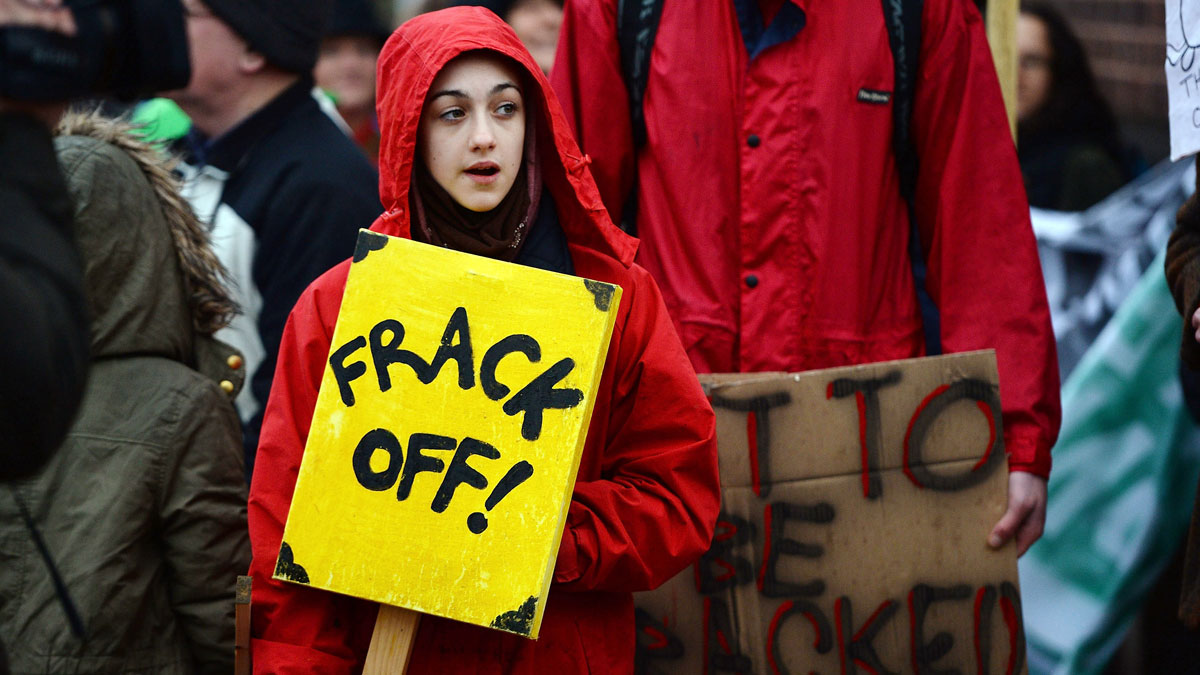
A free daily email with the biggest news stories of the day – and the best features from TheWeek.com
You are now subscribed
Your newsletter sign-up was successful
Fracking: campaigners promise 'hundreds of battles' as new licences granted
19 August
Widespread drilling for shale gas using controversial hydraulic fracturing, or fracking, techniques could be about to begin, after the government issues 27 exploration licences covering large areas of northern England and the Midlands.
But the granting of exclusive drilling rights for the 100 square km "blocks of land", which the BBC says were handed to 12 companies including Cuadrilla and Ineos, is the beginning rather than the end of a process which environmental campaigners have pledged will result in "hundreds of battles" waged to protect countryside and prevent a new wave of investment in fossil fuels.
The Week
Escape your echo chamber. Get the facts behind the news, plus analysis from multiple perspectives.

Sign up for The Week's Free Newsletters
From our morning news briefing to a weekly Good News Newsletter, get the best of The Week delivered directly to your inbox.
From our morning news briefing to a weekly Good News Newsletter, get the best of The Week delivered directly to your inbox.
The licences give each company the sole right to explore for shale gas in the area covered, but planning permission still needs to be granted by local councils for each well site. After Lancashire Country Council refused applications from Cuadrilla for two sites, including one which country planning officials had recommend get the go ahead, ministers announced last week that they will strip councils of decision-making powers where they are seen as unnecessarily "obstructive".
Greenpeace campaigner Daisy Sands said the award of the licences was "the starting gun to the fight for the future of our countryside". She added "hundreds of battles will spring up to defend our rural landscapes from the pollution, noise and drilling rigs that come with fracking".
Other campaigners also pointed to the lack of any southern areas in this first wave of licences, suggesting the Tories were avoiding upsetting voters in their traditional heartlands. "But the north isn't desolate and… if the Government thinks it can simply impose fracking on the north to avoid upsetting the southern shires, then it will have to think again," Friends of the Earth head of campaigns Andrew Pendleton told The Independent.
A second wave of licences for 132 land blocks in which there are greater environmental sensitivities is currently the subject of consultation. This includes about 30 for sites in the south "mostly around Bournemouth, Weymouth, Bath, Bristol and Hereford".
A free daily email with the biggest news stories of the day – and the best features from TheWeek.com
Lord Bourne, the energy minister, told the Daily Telegraph: "It's important we press on and get shale moving, while maintaining strong environmental controls. Investment in shale could reach £33bn and support 64,000 jobs… whilst providing a cost-efficient bridge to lower-carbon energy use."
Fast-track fracking: Tories accused of 'anti-democratic' move
13 August
Councils which "repeatedly fail" to process fracking applications within 16 weeks could lose the right to decide whether drilling for shale gas can go ahead in their areas, the government has said.
Under new guidance issued today by the Department for Energy and Climate Change and first revealed at the weekend by The Sunday Times, the Communities Secretary will be given powers to step in where councils are deemed to be being obstructive. The Planning Inspectorate has also been told to "prioritise" appeals and call-ins to "fast-track" hydraulic fracturing – or fracking.
Energy secretary Amber Rudd and communities secretary Gregg Clark insist that the new powers will continue to "ensure local people have a strong say" in fracking decisions while making sure "communities and the industry benefit from a swift process". They add "strong safety and environmental safeguards" will remain in place and stress economic benefits for local communities, with a consultation on a sovereign wealth fund to manage and invest proceeds to be published later this year.
But they immediately faced a barrage of criticism that the new process is "anti-democratic".
Speaking to The Guardian, Marcus Johnstone, Labour cabinet member at Lancashire county council, which rejected two fracking applications from Cuadrilla earlier this year after a year-long delay, said: "I can see what the direction of travel is: it's to remove local determinism, and the right of local people to have a say."
He said that his committee had extended deadlines only in order to get more information. The government's new rules will allow such delays in future, but only where "applicants agree to a longer period" for consideration.
Naomi Luhde-Thompson, Friends of the Earth's planning adviser, said: "Local authorities have been following the rules. These changes are being made because the Government doesn't agree with the democratic decisions councils have been making."
Industry representatives, however, welcomed a move they say will help bolster the UK's energy security in the future.
Ken Cronin, chief executive of UK Onshore Oil and Gas, the industry body, told the BBC: "Experience has shown that the planning process is unwieldy and the time taken for planning decisions has soared from three months to over a year… It is right that the government is acting to ensure that local people can have their say and that the highest standards of safety and environmental protection are met, but also ensuring that the planning process itself is fit for purpose."
Fracking: councils told to fast-track decisions
10 August
Councils have been warned they must meet targets to fast-track 'fracking' applications through the planning system or face decisions being taken out of their hands.
The Sunday Times reports the Department of Energy & Climate Change (DECC) will be writing to local authorities this week to demand applications are processed quicker and issue new guidance giving ministers greater power to "step in… if planners are perceived to be obstructive".
Writing in the paper, energy secretary Amber Rudd says the country "can’t continue with a system in which applications are dragged out for months or even years on end" and that "could spell the end of a potentially vital national industry".
Local councils seldom meet a target to process "environmentally sensitive" applications within 16 weeks and have proved hostile to fracking amid widespread opposition. In a recent victory for campaigners and a blow to the Government, Lancashire County Council rejected two applications to drill wells from Cuadrilla. An appeal is expected which could drag the case on for up to two further years.
The Times says the intervention comes as the DECC is preparing to issue a first wave of licences following an auction last year, which will grant exclusive rights to explore for gas in a number of less controversial areas across the UK.
A second wave relating to regions close to national parks or areas of outstanding natural beauty will come later this year. Once licences have been granted, planning permission is still required from local authorities for specific sites.
Rudd said the UK needed to pursue shale energy to help ease the transition to renewable energy and ensure energy security, adding local communities would benefit from a deal that will see operators pay councils £100,000 for each well site plus one per cent of production revenue, equivalent to £5m to £10m a year. Councils will also keep all revenue raised from business rates.
But environmental campaigners continue to oppose a practice they say can damage water supplies and harm wildlife. Greenpeace’s Daisy Sands told the Daily Mirror: "The same government that has just given more powers to local councils to oppose wind farms, the cheapest source of clean energy, is about to strip them of their right to say no to risky and polluting fracking."
Fracking roll-out in UK faces 16-month delay
31 July
Plans to roll out fracking across Britain face possible delays of up to two years because of a surprise decision by Lancashire County Council.
The local authority has rejected planning applications from the shale gas company Cuadrilla to drill eight wells at two sites on the Fylde coastal plain.
Councillors ruled exploratory drilling would have an unacceptable visual impact and create too much noise.
Cuadrilla has appealed but the process may take up to 16 months to resolve and the Government fears similar companies are unlikely to submit further applications until the Lancashire appeal is concluded, reports The Independent.
"It is incredibly frustrating," a Government source told the newspaper. "Cuadrilla has already spent millions on the process, and will now have to spend millions more on the appeal.
"But the real problem is that until the industry knows what the outcome is in Lancashire, there is going to be a real reluctance to invest in other areas."
The development was not entirely unexpected in Whitehall circles. A letter leaked to The Guardian shows that in November 2014 Chancellor George Osborne asked ministers in the Department of Energy and Climate Change, and the Department for Communities and Local Government, to prepare for the possibility Lancashire might turn down Cuadrilla's application.
Environmental campaigners say the Lancashire delay will be used to galvanise further support against fracking, which they believe is dangerous.
Last month a report from the industry-funded UK shale gas taskforce concluded it was too early to say whether fracking was good for the UK.
Fracking: censored report highlights house price threat
2 July
The full text of a heavily redacted government report, published after a long Freedom of Information battle, has set out several risks associated with 'fracking'. These include the suggestion that house prices in affected areas could fall by up to 7 per cent.
The Department for Environment, Food and Rural Affairs (Defra) released the report late on Wednesday following a ruling from the Information Commissioner's Office. According to The Times a version of the study had been published last year with more than 60 sections redacted.
The Guardian points to evidence in the report based on experiences in Texas that homeowners in UK regions within a mile of a well could see the price of their house fall by up to 7 per cent. Those within five miles could also face additional insurance costs due to the heightened risk of damage related to explosions or tremors.
More speculative findings suggest that waste fluid leakage could pollute water supplies and contaminate agricultural products. BBC News Online highlights a separate section that states there could be an indirect increase in greenhouse gas emissions related to fracking.
The Government is a keen advocate of expanding fracking as it hopes to replicate an energy boom experienced in the US. The report highlights figures from the Department for Energy and Climate Change and Institute of Directors that claim fracking could bring investment of £3.7bn to the UK and create between 16,000 and 74,000 jobs.
Defra sought to pour water on the negative findings, stating in a 'covering note' that the report simply gathers together information from other published sources, is incomplete and contains "no new evidence". A spokesperson told Sky News that "many of the conclusions amount to unsubstantiated conjecture".
Earlier this week New York State firmed up its ban on fracking activities, while in California new rules were introduced requiring greater monitoring of the effects of offshore drilling on water supplies. This, though, did not prevent the state from issuing nine new drilling permits last month.
-
 Why is the Trump administration talking about ‘Western civilization’?
Why is the Trump administration talking about ‘Western civilization’?Talking Points Rubio says Europe, US bonded by religion and ancestry
-
 Quentin Deranque: a student’s death energizes the French far right
Quentin Deranque: a student’s death energizes the French far rightIN THE SPOTLIGHT Reactions to the violent killing of an ultraconservative activist offer a glimpse at the culture wars roiling France ahead of next year’s elections
-
 Secured vs. unsecured loans: how do they differ and which is better?
Secured vs. unsecured loans: how do they differ and which is better?the explainer They are distinguished by the level of risk and the inclusion of collateral
-
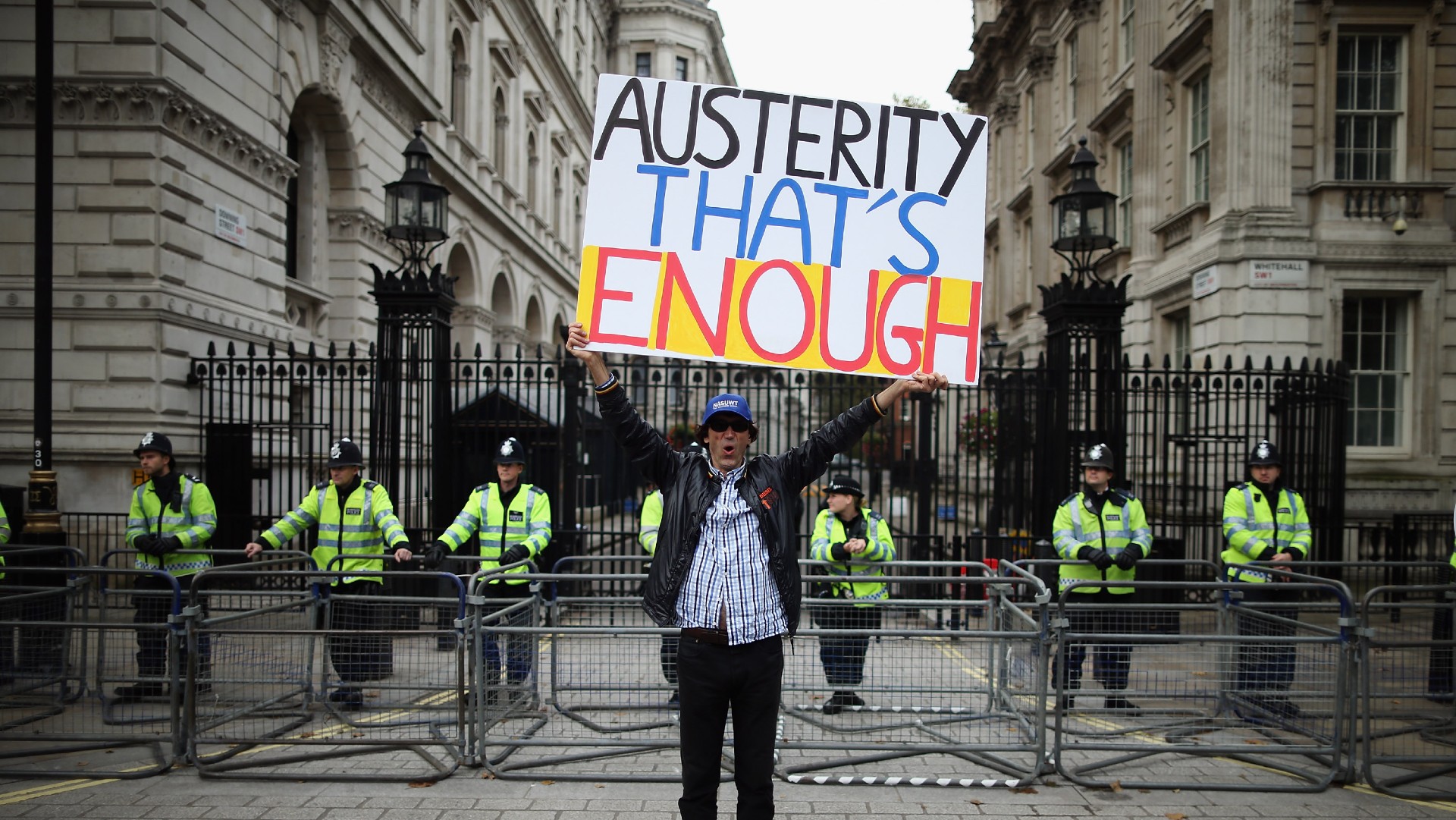 Do Tory tax cuts herald return of austerity?
Do Tory tax cuts herald return of austerity?Today's Big Question Chancellor U-turns on scrapping top rate tax but urges ministers to make public spending cuts
-
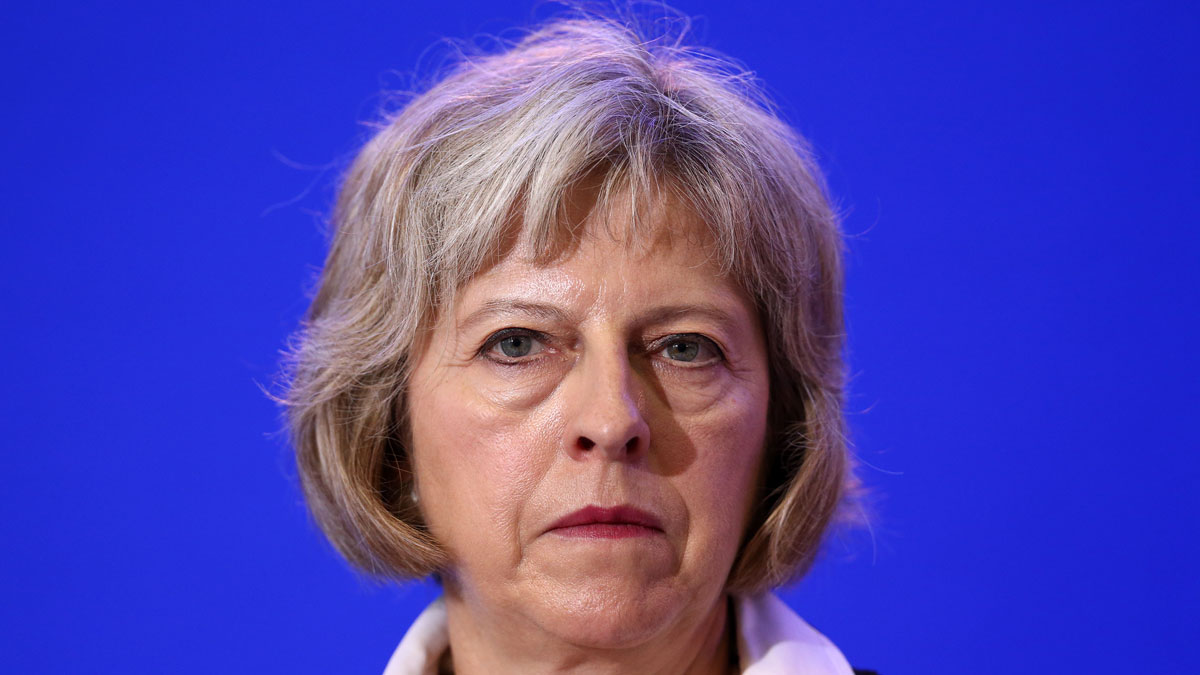 MPs and businesses cross swords over record net migration
MPs and businesses cross swords over record net migrationIn Depth Politicians on all sides call for migration to be part of EU renegotiation as business leaders brand target "bizarre"
-
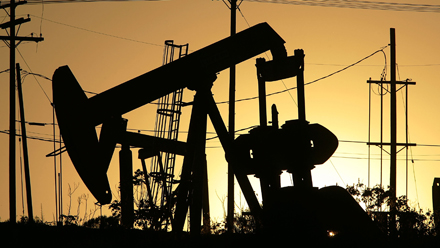 Oil discovered in West Sussex 'could produce billions of barrels'
Oil discovered in West Sussex 'could produce billions of barrels'Speed Read Most experts warn that fracking would be needed to extract commercial quantities of oil from the region
-
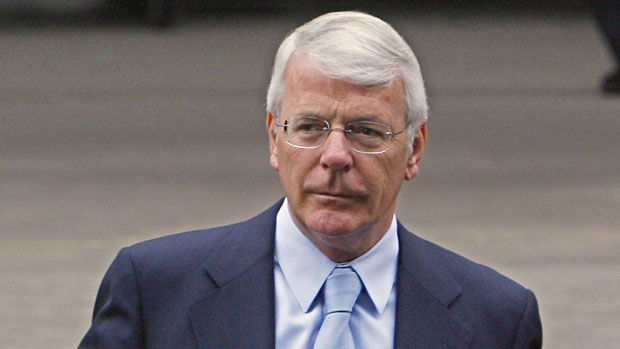 John Major praises 'guts and drive' of immigrants in the UK
John Major praises 'guts and drive' of immigrants in the UKSpeed Read Former PM's tone on immigration contrasts with that of Cameron, who has launched crackdown on 'benefit tourism'
-
 Toasts to Osborne in Tunbridge Wells: but what about the rest?
Toasts to Osborne in Tunbridge Wells: but what about the rest?In Depth Comfortably-off savers and pensioners get a Budget boost – and a reason (perhaps) to vote Tory not Ukip
-
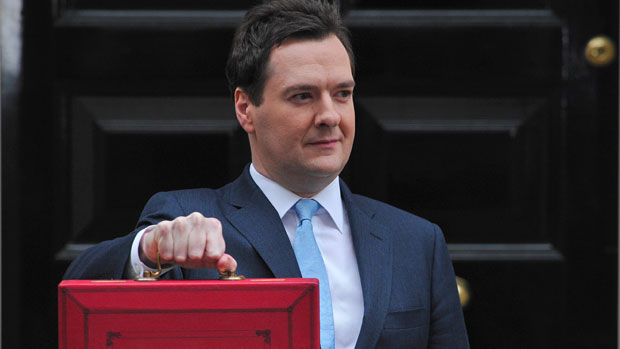 Budget 2014: what we want vs what we'll get from Osborne
Budget 2014: what we want vs what we'll get from OsborneIn Depth The Chancellor might have a surprise up his sleeve but this won't be a Budget full of tax giveaways
-
 GDP swells by 0.7% as UK show 'fastest growth' since 2007
GDP swells by 0.7% as UK show 'fastest growth' since 2007Speed Read Economy is 'robust', but growth slowed slightly in last quarter of 2013 and construction shrunk
-
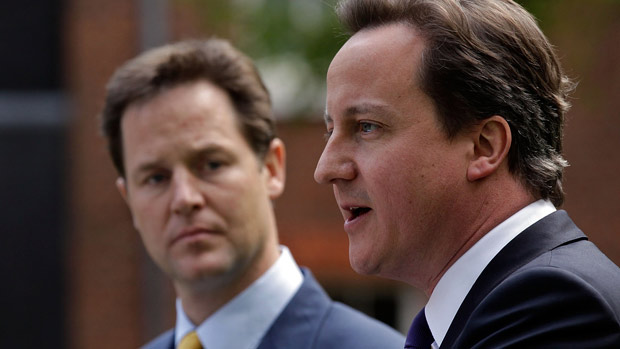 Coalition hails real terms 'wage rise' despite Labour denials
Coalition hails real terms 'wage rise' despite Labour denialsIn Depth The government says wages for most people rose faster than the cost of living over the past year